number of rakats For traveller
Posted by Ahmed Abdulla | Prayer
A common question which is often asked while travelling is (1) Can I shorten the prayer while travelling, (2) if yes, how many rakats should I pray for Salah?
We have answered (1) in detail and you can see the discussion on Shortening and combining prayer while travelling .
The summary:
- Yes it is both mentioned in the Quran and is the Sunnah of the Prophet, peace and blessings upon him, to offer the shortened prayer while travelling.
- The conditions are you are travelling outside your city or beyond 88km and you plan your stay to be less than fifteen days (according to Hanafi Fiqh). If for unforeseen circumstance, you are compelled and stuck there you can continue offering the Qasr salat as long as your unable to return. This can be weeks, months or years.
With regard to the number of rakats offered for Salah we will answer it here.
It was narrated that ‘Umar said: “The prayer for jumu’ah is two rak’ahs, and for Al-Fitr is two rak’ahs, and for An-Nahr is two rak’ahs, and for traveling is two rak’ahs, complete and not shortened, on the tongue of the Prophet (ﷺ).” Grade: Sahih (Darussalam) Reference: Sunan an-Nasa’i 1440
It was narrated that ‘Umar said: “The prayer while traveling is two Rak’ah, and Friday is two Rak’ah, and ‘Eid is two Rak’ah. They are complete and are not shortened, as told by Muhammad (ﷺ).” Grade: Sahih (Darussalam) Sunan Ibn Majah
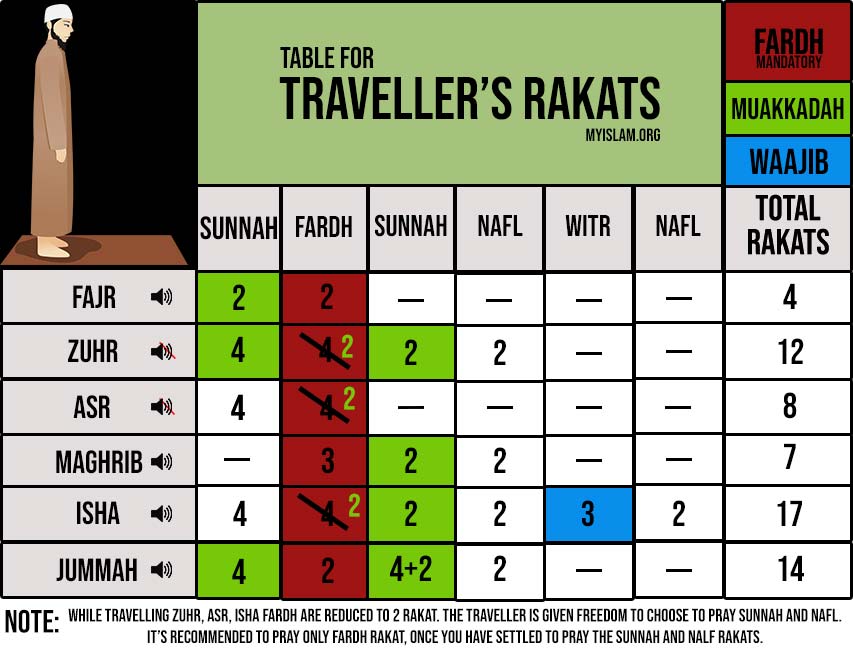

Number of Rakats While Travelling:
Fajr – 2 Fardh Zuhr – 2 Fardh Asr – 2 Fardh Maghrib – 3 Fardh Isha – 2 Fardh
With regards to the Sunnah and Nafl salat, the travellers had the choice as to whether or not this will be offered. It is advised once the traveller has settled that he should pray the Sunnah and Nafl prayers.
Some scholars are under the opinion that Fajr sunnah and Witr prayer should be prayed even during the stay or travel as it’s strongly emphasized. There is no shortening of the Nafl, Maghrib or Fajr Salat.
Inshallah this clears up any confusion you may have had. Please leave a comment below if this helped or if you believe we have made a mistake anywhere.
Related Posts

Learn Attahiyat Full Dua (Attahiyat lillahi wa salawatu)
March 17, 2020
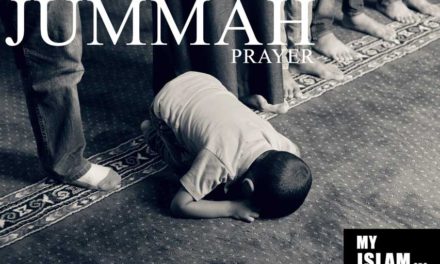
Blessings and importance of Jummah Prayer
March 28, 2020

Subhana Rabbiyal Azeem and Subhana Rabbi Al Ala
December 31, 2019

67+ Salah Quotes in Quran (verses in Quran About Islamic Prayers)
April 9, 2020
19 Comments
Jazakallah very helpful.
Jazaqah llahu khaira, I used to pray all the raqaa as the way their when I’m traveling but ,,rightnow I understand the number of raqaa And if possible may you please create the group for whatsup because in my side my phone can’t access an email
Jazak Allah Khair, very useful information
https://www.youtube.com/watch?v=P7RHDzp_kQw Please write “in shaa Allah” properly. Reference is the link above.
Asalamuwalaikum, 2 questions please 1) i regularly go to visit my inlaws who live 100km away from my home. I usually visit for 1 week. Whilst there can i shorten my prayers as i am considered a traveller? 2) can i join my prayers for example asr with with zuhr and isha + witr with my maghrib salah? Is this permissable? I appreciate your comments and thoughts.
I travel for a month can I conflict may prayer
Assalaamu alaikum,
I read this article while I was traveling by plane. Prayed Isha with thus guidance.
Jazākallahu khairuh
Very useful information. JK!!
Mashaallah thank you
: Assalamualaikum wa Rahamatullahi wa barakatuh.Iam working 140km to my hometown(Nellore) .There I am staying 30 days and above .Then I come back to my home for3 or 4 days and go back to my job.At my job place(medarametla,Ongole) I prayed full rakat of zohar, asar, and isha.But now my job place was changed to more 40km(chilakaluripet).There I am working for 3 or 4 days and comeback to original job place (Medarametla)her I am working for 2 or 3 days and go back to previous work place (chilakaluripet).This will happened continuously. How I perform my namaz in above mentioned places is in Medarametla and in Chilakaluripet.Now I am praying khasar namaz in two places. And when to my hometown I pray full namaz.please kindly give me answer as quickly as possible.
If every almost two weeks or three weeks I travel to my mother’s home am I supposed to shorten my Salah for almost 3days or just because that’s where I was born it’s like my home am also supposed to pray all the 4 rakats in full thanks
Jazakallah khayran very useful.
Salaams . Why should we pray nafl and sunnah as a traveller , when we shortened our fardh salaah and fardh is more imp than sunnah and nafl.
Just need to ask for how many jumma rakats while travelling
When praying in masjid When not praying in masjid
Informative!
We can observe travel rakkah for how many days?
is when you travel more than 50 MILE
Jazakhallah very useful to know how many rakaats to pray If you’re a traveller
I’m traveling for 21 days overseas. I already know it is more than 15 days. During travel to destination I made the kasr (shortened) but upon arrival I started as normal thiugh I was exhausted and it was difficult to pray the normal length with sunnahs and nafils (i.e, complete namaz). Could I have done the shortened prayer for 15 of the 21 days or I’m correct in starting off the complete prayers upon arrival. I realize Allah has offered flexibility and ease in our madhhab, but I’m unclear about this matter.
Leave a reply Cancel reply
Your email address will not be published. Required fields are marked *
Support the site?
“Take on only as much as you can do of good deeds, for the best of deeds is that which is done consistently, even if it is little.” – Sunan Ibn Majah 4240
Need more info? Read our 2023 Annual Report
June 26, 2024
A Digital Archive of Islamic Knowledge
The Hanafi Stance on Combining Prayers During Travel

Why don’t Hanafis combine prayers, when there are authentic hadiths about it?
In the Name of Allah the Inspirer of truth.
This issue is a major one between the fiqhi schools. The Hanafis have judged all the narrations on this issue to be based on the method of “apparent combining” ( Jam’ al-Suri ) not “real combining” ( Jam’ al-Haqiqi ). What this means is that since we are told to make every prayer on time, and there are hadiths of Ibn Mas’ud (R) which clarify that the Prophet, sallallahu `alayhi wa sallam , never combined the prayers together (by taking a prayer out of its time) except in ‘Arafa and Muzdalifa during the [Hajj] pilgrimage.
The following, which is an excerpt the from the Fiqh al-Imam (third edition) currently under publication, [1] may be useful in understanding the hadiths on this issue:
From the Chapter on “Combining Two Prayers”:
‘Abdullah ibn Mas’ud (R) relates:
“I never observed the Messenger of Allah sallallahu `alayhi wa sallam perform any prayer out of its time except at Muzdalifa. He combined Maghrib and ‘Isha at Muzdalifa.” ( Sahih al-Bukhari 1:227, Sahih Muslim 1:417, Sharh Ma’ani ‘l-athar 1:164)
Another narration of Ibn Mas’ud (R) states:
“The Messenger of Allah combined two prayers whilst on a journey. He would combine Maghrib and ‘Isha by delaying Maghrib until just before its expiry time, and performing ‘Isha immediately as its time entered.” ( Musannaf Ibn Abi Shayba 2:458)
‘A’isha narrates: “The Messenger of Allah, whilst on a journey, would delay Zuhr and perform ‘Asr early and would delay Maghrib and perform ‘Isha early (i.e. perform each prayer in its own time).” ( Sharh Ma’ani ‘l-athar 1:164, Musannaf Ibn Abi Shayba 2:457)
Ibn ‘Abbas (R) narrates:
“I performed eight rak’ats together (four of Zuhr and four of ‘Asr) and seven rak’ats together (three of Maghrib and four of ‘Isha) with the Messenger of Allah.” (One of the narrators says,) “I asked Abu ‘l-Sha’tha’, ‘I assume he delayed Zuhr (to the end of its time) and performed ‘Asr as soon as it entered, and delayed Maghrib (likewise) and performed ‘Isha early.’ He replied, ‘I also think the same.’ ” ( Sahih Muslim 1:246, Musannaf Ibn Abi Shayba 2: 456)
This hadith of Sahih Muslim is very clear about the exact description of combining two prayers. The method described by the narrator is Jam’ al-suri .
Imam Abu Dawud has transmitted the following:
The Mu’adhdhin of ‘Abdullah ibn ‘Umar (R) informed him it was time for prayer. Ibn ‘Umar instructed him to continue on the journey. When the red of sunset ( shafq ahmar ) had nearly disappeared, he got of from his mount and performed Maghrib, and then he waited until the red had completely disappeared and performed Isha. He then said, “Whenever the Messenger of Allah (S) was in a hurry for some reason, he would do just as I have done.” ( Sunan Abi Dawud 1:178)
As we can see, the method of combining mentioned in the above hadiths is none other than that of jam’ al-suri . It is an agreed upon method which nobody has any argument with. How can there be an objection to two prayers being performed together in a way that does not cause them to be performed either before their stipulated time or after it? Undoubtedly, this is the safest method of combining two prayers, and would be the most suitable way to explain the hadiths on combining.
It is also common knowledge that the Fajr prayer should not to be performed before its time or intentionally delayed beyond it. Similarly, other prayers should not be performed out of their stipulated times either, especially not while considering it to be sunna . This indicates that the sunna method of combining two prayers is jam’ al-suri , as has also been substantiated through the Qur’an and hadiths. This is the Hanafi opinion in this issue.
If it was permissible to practice jam’ al-haqiqi in the event of travel or illness, etc. then why is it confined to some prayers only? Why is it not permissible to perform all the prayers of the day together in the morning before departing on a journey? The reason for this is quite simple. The practice of combining mentioned in the hadiths is not to be taken as jam al-haqiqi , but as jam al-suri wherein each prayer remains in its own time, but are performed one after another.
And Allah knows best.
Wasallaam Abdurrahman ibn Yusuf
[1] The book Fiqh al-Imam by Mufti Abdur Rahman ibn Yusuf has already been published by White Thread Press.
Courtesy of ZamZam Academy
Share this:
- Click to print (Opens in new window)
- Click to email a link to a friend (Opens in new window)
- Click to share on Pocket (Opens in new window)
- Click to share on Twitter (Opens in new window)
- Click to share on WhatsApp (Opens in new window)
- Click to share on Telegram (Opens in new window)
- Click to share on Facebook (Opens in new window)
- Click to share on Reddit (Opens in new window)
- Click to share on Tumblr (Opens in new window)
- Click to share on Pinterest (Opens in new window)
Published in Fiqh , Prayer and Rulings
- combining prayers
- fiqh of travel
- hanafi fiqh
- shortening prayer
Comments are closed.
About Islam
- # Quran 382 Articles
- # Spirituality 382 Articles
- # Discovering Islam 382 Articles
- # Shariah 382 Articles
- # Videos 382 Articles
- # Family & Life 382 Articles
- # Fatwa & Counseling 382 Articles
- # Muslim News 382 Articles
- # Youth Q & A 382 Articles
- # Donate 382 Articles
- Ask the Scholar
Praying while Traveling: How?
Wa`alykum As-Salaamu Warahmatullahi Wabarakaatuh.
In the Name of Allah, Most Gracious, Most Merciful.
All praise and thanks are due to Allah, and peace and blessings be upon His Messenger.
In this fatwa:
There is general consensus among scholars that if a traveling person is determined to return as soon as his work is done and does not know when that will be, then he may continue to pray q asr as long as he is on travel.
" title="Advertise and Market to Muslims" target="_blank">Ads by Muslim Ad Network
In his response to the question you posed, Sheikh Ahmad Kutty , a senior lecturer and an Islamic scholar at the Islamic Institute of Toronto , Ontario, Canada, states:
- There is general consensus among scholars that if a traveling person is determined to return as soon as his work is done and does not know when that will be, then he may continue to pray q asr as long as he is on travel.
If, however, a person decides to settle down in a city, the moment he does so, he ceases to be a traveler, and, therefore, he must pray full.
If, on the other hand, one is determined to stay only for a few days the number of which he knows precisely, then he should pray full, according to a great number of scholars, if his stay exceeds more than four days. The Hanafi School, however, puts the number of allowable days at fifteen, while a third group of scholars put it at eighteen.
The first view seems to be the safest view to follow, as it has been based on the Prophet’s practice. According to authentic reports, he stayed in Makkah for four days, and during his stay he prayed q asr ; he had already known in advance how many days he would be staying. He is reported to have prayed qasr for eighteen and twenty days on two different occasions, when, most likely, he had no idea as regards the number of days he would be staying.
Having said this, I should rush to state that if anyone follows the position of the Hanafi School, he should not be blamed for his action, for theirs is a Fiqh – ruling based on acceptable practices of the Salaf as-Salih (pious predecessors). Since it is merely a question of differences of interpretation based on valid Ijtihad (creative exercise of reasoning), one should never make a big issue out of such differences of opinion among Imams.
- The most accurate way to count the number of days for a traveler is to consider oneself a traveler only after one has crossed the boundaries of his city of residence.
Thus, in case of people living in Toronto, if they are in a long distance journey, they will be considered travelers only after they have crossed the boundaries of GTA. The days of stay are calculated by excluding the day/days of going and returning.
- Yes, according to the vast majority of scholars and Imams, it is perfectly allowed for a traveler to combine Zhuhr and Asr , and Maghrib and Isha.
This ruling (known as Jam` ) is based on the authentic traditions which clearly state that the Prophet (peace and blessings be upon him) had combined Zhuhr and Asr as well as Maghrib and Isha on a number of occasions while traveling.
According to the Hanafi School, however, combining prayers is allowed only during Hajj while performing the rite of standing in `Arafah . At other times, they allow only what is often termed as Jam suwari (a kind of combining): By this they mean to say that you are allowed, for instance, to delay Zhuhr and pray it at the last time of Zhuhr and then pray Asr at the first time of Asr.
The majority view allowing combining of prayers as mentioned earlier has been considered to be the most authentic; it has been adopted later by many scholars belonging to Hanafi School as well.
- While combining prayers, you are allowed to make either taqdim (advancing) or ta’khir (delaying): In other words, you are allowed to advance the second prayer to the time of the first prayer.
Thus, if you are combining Zhuhr and Asr , you can first pray Zhuhr, and then advance Asr by praying immediately, or if you wish you can defer praying Zhuhr until the time of Asr and then pray Asr afterwards. The same procedure applies to combining Maghrib and Isha as well. at the time of arrives, in which case, you will first pray.
An important word of caution concerning Jam` is that there is no combining of Fajr with Zhuhr, or Asr with Maghrib, or Isha with Fajr.
It is also worth mentioning that while praying qasr during travel is highly recommended—some Imams such as Abu Hanifah even consider it as obligatory—during travel, praying Jam` is only allowed while one is actually traveling or pre-occupied with pressing circumstances. Jam` is rare, while qasr is common.
A final remark to be made is that if a person is aimlessly wandering, he is not considered a traveler and is, therefore, not allowed to make use of the allowances of qasr and Jam` .
Allah Almighty knows best.
Editor’s note: This fatwa is from Ask the Scholar’s archive and was originally published at an earlier date.
Privacy Overview
Welcome to Shaykhi Academy!
Fasting While Traveling During Ramadan: Guidelines With Hanafi View And Time Zones
- Ahmed Gamal
- March 23, 2024
- No Comments
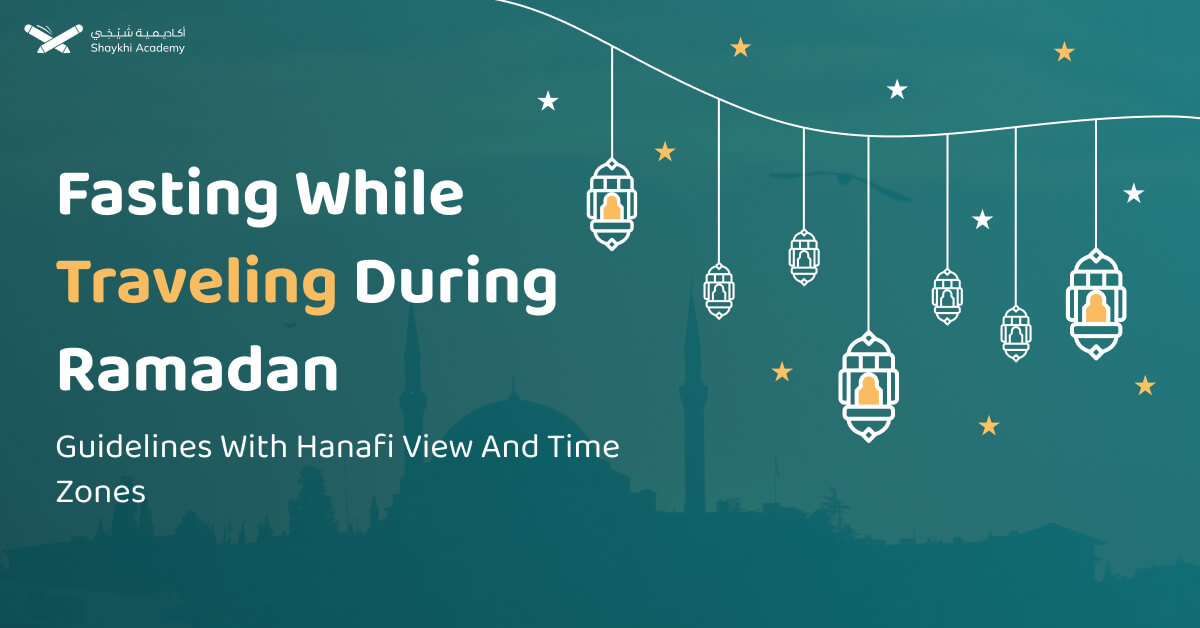
Fasting while traveling during Ramadan involves nuanced considerations rooted in Islamic jurisprudence and principles of mercy and flexibility. Ramadan, the holy month of fasting in Islam, presents unique challenges for travelers. Balancing the spiritual obligation of fasting with the demands of travel requires understanding the rules, guidelines, exemptions, voluntary fasts, Hanafi views, and time zones. This article aims to shed light on the intricacies of fasting while traveling during Ramadan, providing guidance and clarification for Muslim travelers.
Fasting while traveling during Ramadan involves understanding various rules, exemptions, and considerations rooted in Islamic jurisprudence. The validity of fasting while traveling depends on factors such as travel distance, purpose, intention, and duration of stay. Valid exemptions for not fasting include illness, pregnancy, breastfeeding, elderly or weak condition, and menstruation.
While it’s not prohibited (haram) to fast while traveling, flexibility is encouraged, and breaking the fast is permitted if it poses an undue hardship. The Hanafi school provides specific guidelines regarding fasting while traveling, emphasizing respecting the sanctity of fasting and acknowledging extreme hardship as grounds for breaking the fast.
When traveling across time zones, the fasting person should adhere to the sunset timing of their current location. Ultimately, the traveler has the option to continue fasting until sunset or avail themselves of the concession to break the fast. Shaykhi Academy offers comprehensive Quranic education for both children and adults, providing flexible and affordable courses tailored to individual needs.
Defining Fasting While Traveling Ramadan
Fasting while traveling during Ramadan refers to the observance of Sawm while undertaking a journey that involves significant distances or changes in routine. It encompasses adhering to fasting rituals despite the challenges posed by travel, such as altered meal times, fatigue, and exposure to different environments.
Traveling and Fasting During Ramadan
Muslim travelers often encounter dilemmas regarding fasting obligations and practical considerations while journeying during Ramadan . The interplay between travel and fasting raises questions about continuity, flexibility, and adherence to religious duties.
While the core principle remains the same, traveling introduces additional considerations:
- Travel Distance: Islamic scholars generally agree that a minimum travel distance, typically exceeding 85 kilometers (53 miles), qualifies someone as a “traveler” and allows exemptions from fasting.
- Travel Purpose: The journey should be permissible, such as seeking knowledge, work, or visiting family. Travel for sinful purposes doesn’t grant exemptions.
- Intention: Traveler must intend to break the fast upon embarking on the journey before dawn. If he begins his journey after dawn, he cannot break his fast on that day. However, he is permitted to break his fast on subsequent days if the fourth condition applies.
- Duration of stay: A traveler must not stay at their destination for four days or more, excluding the days of arrival and departure. If the intention is to stay longer than four days, it is not permissible to refrain from fasting except during transit. Upon returning to their home country, the traveler is considered a resident and must fast.
What Are the Valid Exemptions for Not Fasting During Ramadan?
There are several valid exemptions for not fasting during Ramadan, including illness, travel, pregnancy and breastfeeding , elderly and weak, menstruation and pospartum bleeding. These exemptions are based on the understanding that the purpose of fasting is not to cause hardship , but to promote spiritual growth and self-discipline.
This permission is based on the Quranic verse:
“The month of Ramadhan [is that] in which was revealed the Qur’an, a guidance for the people and clear proofs of guidance and criterion. So whoever sights [the new moon of] the month, let him fast it; and whoever is ill or on a journey – then an equal number of other days. Allah intends for you ease and does not intend for you hardship and [wants] for you to complete the period and to glorify Allah for that [to] which He has guided you; and perhaps you will be grateful.” ( Al-Baqarah 2:185 ).
Here are some of the most common exemptions:
- Illness: If you are sick and fasting would worsen your condition, you are exempt from fasting. This includes both physical and mental illnesses. It is important to consult with a doctor to determine if you are well enough to fast.
- Travel: If you are traveling a long distance, you are exempt from fasting. The exact distance that qualifies as “long distance” varies depending on the school of Islamic thought, but it is generally considered to be around 50 miles or more.
- Pregnancy and breastfeeding: Pregnant and breastfeeding women are exempt from fasting because they have additional nutritional needs. They can make up the missed fasts later , or they can feed a poor person for each day they miss.
- Elderly and weak: People who are elderly or weak and unable to endure the fast are exempt. They can make up the missed fasts later, or they can feed a poor person for each day they miss.
- Menstruation and postpartum bleeding: Women who are menstruating or experiencing postpartum bleeding are exempt from fasting. They must make up the missed fasts later.
Is it Haram to Fast While Traveling?
No, it is not haram (not prohibited) to fast while traveling. fasting while traveling is permissible and valid according to the four Imams and the majority of the Sahabah and Tabi’in. If a traveler chooses to fast, their fast is accepted, and there is no obligation to make it up later.
As for which option is better—fasting or not fasting while traveling—it depends on the individual circumstances:
- If fasting and not fasting pose the same level of difficulty, then fasting is preferable. This is supported by the practice of the Prophet Muhammad (peace and blessings be upon him) and his companions, who fasted while traveling.
- If not fasting is easier for the traveler, then they shouldn’t fast. In such cases, fasting may be disliked (makruh) because it entails unnecessary hardship, and rejecting a concession granted by Allah is not encouraged.
- If fasting while traveling causes unbearable difficulty, then it is prohibited (haram) for the traveler. This is indicated by the Prophet’s disapproval of those who continued fasting despite hardship during a journey, as narrated in Sahih Muslim.
Is it Permissible to Fast Voluntarily Fasts While Traveling?
Yes, it is permissible to fast voluntarily while traveling, even if you have a valid reason to break the fast. In fact, some travelers choose to do so for various reasons. Let’s explore the aspects of voluntary fasting while traveling
Always prioritize your health and well-being. If travel conditions make fasting excessively difficult or pose a risk to your health, breaking the fast is the right decision. Consult a doctor if you have any concerns. Be mindful of fatigue and dehydration, especially in unfamiliar environments or harsh climates. Adjust your sleep schedule in Ramadan , plan rest breaks, and prioritize water intake during permitted times.
The decision to voluntarily fast while traveling is ultimately a personal one. Reflect on your intentions, physical well-being, and travel conditions before making a choice.
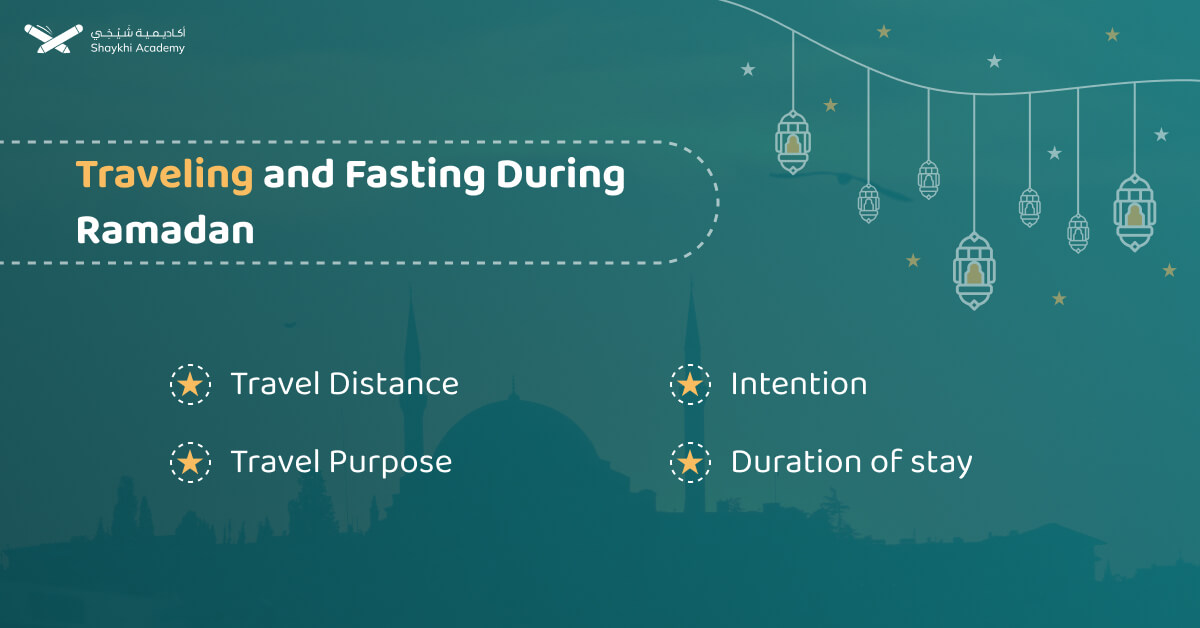
Hanafi View on Travelers and Ramadan Fasts
The Hanafi school of thought, one of the four major Sunni schools of Islamic law, provides specific guidelines and considerations regarding fasting while on a journey during the holy month of Ramadan.
The Hanafi school places significant weight on the timing of a traveler’s journey . To be eligible for breaking the fast, the journey must commence before dawn . This signifies the traveler’s intent to break the fast from the outset, aligning with the principle of fasting obligation starting at dawn. Traveling after dawn doesn’t qualify as the individual had already begun the day with the intention to fast.
Arriving During Fasting Hours
If a traveler arrives mid-day while not fasting , differing opinions arise. Some scholars argue that the traveler wasn’t obligated to fast initially due to their journey, so they shouldn’t be compelled to abstain for the rest of the day.
However, the Hanafi school adopts a stricter approach. They emphasize the importance of respecting the sanctity of the ongoing fast and aligning with the local fasting community . Even though the traveler wasn’t initially obligated, arriving during the fasting hours necessitates outward and inward abstinence as much as possible. This reflects the spirit of respecting the overall fasting environment.
Breaking the Fast When Hardship Exceeds Limits
While fasting is mandatory, the Hanafi school acknowledges situations where breaking the fast becomes permissible. Extreme fatigue or thirst reaching the point of fearing death, loss of senses, or mental impairment justifies breaking the fast.
This applies to both travelers and residents , including pregnant and breastfeeding women experiencing similar extreme hardship. However, breaking the fast necessitates making up the missed days later. This balance ensures both compassion for those facing hardship and adherence to the core obligation of fasting.
What is the Ruling on Fasting While Traveling Time Zones?
Follow the sunset timing of your destination, this is the core principle.The fasting person should not break their fast until the sun sets in the place where they are currently located, regardless of the time zone difference with their place of departure. This rule applies particularly when traveling westwards, where the sun may set later than in the traveler’s original location. Even if the sun has already set in the traveler’s place of origin, they must wait until sunset in their current location to break their fast.
For example, if someone travels westwards and reaches their destination where the sun has not yet set, they must continue fasting until sunset in that location, even if it means fasting for a longer duration than usual.
This ruling is based on the Qur’anic verse:
“And eat and drink until the white thread of dawn becomes distinct to you from the black thread [of night]. Then complete the fast until the sunset.” [ al-Baqarah 2:187 ].

Options for the Traveler
The traveler has the option to either:
- Continue fasting until sunset in their current location or;
- Avail themselves of the concession for travelers to break their fast.
If the traveler finds it excessively difficult or burdensome to fast until sunset, especially if the day becomes significantly longer due to the time zone difference, they may choose to break their fast and make up for the missed day later after Ramadan has ended.
Unlock the Path to Quranic Mastery with Shaykhi Academy!
Are you seeking the finest Quranic education right from the comfort of your home? Look no further! Shaykhi Academy stands out as a premier online Quran learning platform, dedicated to providing exemplary education to both children and adults.
Why Choose Shaykhi Academy?
- Connect with highly qualified native tutors .
- Flexible scheduling to suit your busy lifestyle.
- Affordable classes tailored for all levels.
- Accessible from anywhere around the globe.
Discover Our Range of Courses:
- Arabic Noorani Qaida : Lay a solid foundation for Quranic studies.
- Online Quran Classes for Kids : Engaging lessons for lifelong learning.
- Tajweed Rules for Kids : Learn to recite with confidence.
- Quran Hifz for Kids : Step-by-step guidance to memorize the Quran.
- Quran for Adults : Introduce yourself to Quran reading and Tajweed rules.
- Online Arabic Courses : Master the language of the Quran.
- Islamic Studies : A wide range of topics related to Islam, including theology, law, Quranic studies, Hadith.
Don’t Miss Out on Your Chance to Excel!
Whether you’re a beginner or seeking advanced knowledge, Shaykhi Academy can guide you! Book your free trial now and make Ramadan 2024 your Quranic turning point!
Conclusion:
Fasting while traveling during Ramadan requires careful consideration of Islamic principles and practical circumstances. While fasting is encouraged as an act of devotion, Islam allows for flexibility and compassion, particularly in situations where fasting poses undue hardship.
Understanding the rules, exemptions, and guidelines provided by Islamic scholars, including the nuanced perspectives of different schools of thought, empowers Muslim travelers to make informed decisions.
Whether choosing to continue fasting or availing oneself of concessions, the primary goal remains spiritual growth and adherence to the core principles of Islam. Shaykhi Academy stands ready to support individuals on their Quranic journey, offering accessible and tailored education to enrich their Ramadan experience and beyond.
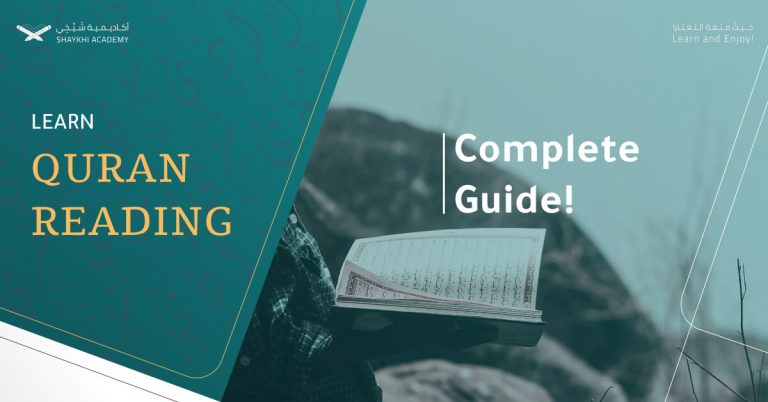
Learn How to Read Quran in Arabic – Complete Guide!

Why Do Muslims Memorize The Quran?

How To Memorize One Page Of Quran A Day?
Our courses.

Recitation And Tajweed Classes For Kids
For those parents who really want to see their kids reciting the Quran properly and beautifully. Here is the solution; Shaykhi

Quran Hifz For Ladies With Female Quran Teachers
Are you searching for the best female online Quran tutor for you and your daughters? Whether you are a working woman,

Quran Hifz And Memorization For Kids
Quran Hifz For Kids is certainly a difficult task, but through our Quran Hifz for kids program, we will help you

Online Tajweed Course – Learn Tajweed Online
Learning the rules of tajweed is indispensable for all Muslims; since the improper pronunciation of a single letter or even a

Online Tafseer Course
To make the process of memorizing Quran easier or to read Quran while you’re pondering over its Ayat and what they

Online Quranic Arabic Course
Are you searching for the best online Quranic Arabic course? Do you wish to learn Quranic Arabic Online; so that you

Online Quran Recitation Course
Do you wish to recite the Holy Quran the same way our Prophet Muhammad and his companions did? At our online

Online Quran Classes for Kids
In such a fast-paced world, and as a Muslim parent, you may find it difficult to commit to Online Quran classes for

Online Ijazah Course – Best Ijazah In Quran Recitation And Tajweed Program
Have you ever thought about learning the Noble Quran with Tajweed to the point of professionalism? If yes, Ijazah Program is

Online Hifz Course – Quran Memorization Online Program
The Quranic Fact says that Quran is easy to understand and remember, and thus what’s remaining is to our task towards

Online Arabic Classes For Kids
Teaching kids Arabic is a process surrounded with many challenges that can be avoided with reliable and efficient online Arabic classes

Learn Quran Online for Adults Course – Beginners Course
In the modern era, learning the Quran online has become an increasing need for Muslims around the globe. Owing to the

Learn Noorani Qaida For Kids – Best Online Course For Beginners
The first step in the journey of learning Quran Reading is learning Arabic Reading. Among various methods of learning Arabic Reading,

Learn Arabic Online Course
Arabic is one of the most important languages in the world, as it is one of the six official languages of

Islamic Studies Online Course
As a muslim, I must learn about my religion. One of the most important sections of our religion in the journey

Fusha Arabic Classes
It’s commonly known that Arabic language is a challenging language to learn. The fact is that it depends on the qualifications
About Shakhi Academy

- +20 155 066 8043
- [email protected]
- 85 Great Portland Street, First Floor, London, W1W 7LT
Important Links
Members can access discounts and special features
Elektrostal, visit elektrostal, check elektrostal hotel availability, popular places to visit.
- Electrostal History and Art Museum
You can spend time exploring the galleries in Electrostal History and Art Museum in Elektrostal. Take in the museums while you're in the area.
- Cities near Elektrostal

- Places of interest
- Yuri Gagarin Cosmonaut Training Center
- Central Museum of the Air Forces at Monino
- Peter the Great Military Academy
- History of Russian Scarfs and Shawls Museum
- Bykovo Manor
- Balashikha Arena
- Ramenskii History and Art Museum
- Malenky Puppet Theater
- Military Technical Museum
- Church of Our Lady of Kazan
- Drama Theatre BOOM
- Balashikha Museum of History and Local Lore
- Pekhorka Park
- Fryazino Centre for Culture and Leisure
- Pavlovsky Posad Museum of Art and History
- Saturn Stadium
- Borisoglebsky Sports Palace
- Church of Vladimir
- Orekhovo Zuevsky City Exhibition Hall
- Shirokov House
- Noginsk Museum and Exhibition Center
- Zheleznodorozhny Museum of Local Lore
- Stella Municipal Drama Theater
- Fairy Tale Children's Model Puppet Theater
- Fifth House Gallery
- Likino Dulevo Museum of Local Lore
- Malakhovka Museum of History and Culture
- Art Gallery of The City District
Expedia Rewards is now One Key™
Elektrostal, visit elektrostal, check elektrostal hotel availability, popular places to visit.
- Electrostal History and Art Museum
You can spend time exploring the galleries in Electrostal History and Art Museum in Elektrostal. Take in the museums while you're in the area.
- Cities near Elektrostal

- Places of interest
- Yuri Gagarin Cosmonaut Training Center
- Central Museum of the Air Forces at Monino
- Peter the Great Military Academy
- Bykovo Manor
- Balashikha Arena
- Ramenskii History and Art Museum
- Malenky Puppet Theater
- Balashikha Museum of History and Local Lore
- Pekhorka Park
- Saturn Stadium
- Orekhovo Zuevsky City Exhibition Hall
- Noginsk Museum and Exhibition Center
- Give Your Zakat
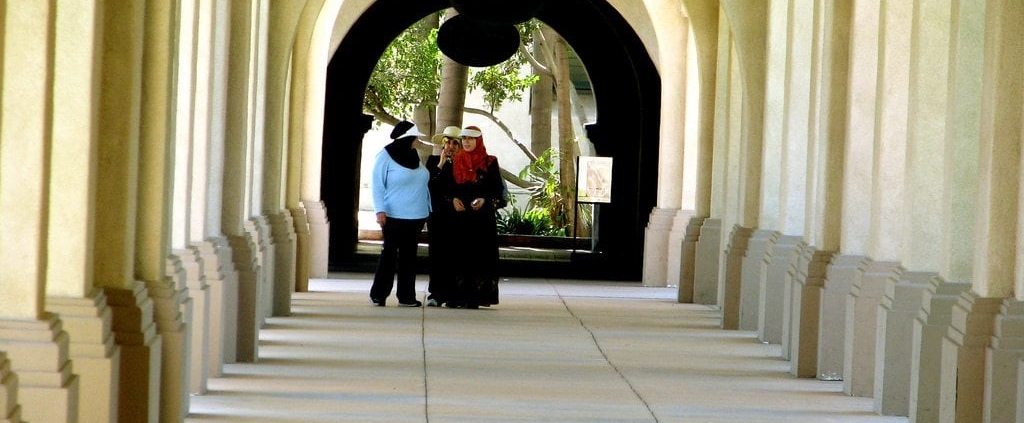
What Is the Distance a Woman Can Journey Alone?
Answered by Ustadh Tabraze Azam
Question: Assalam alaikum,
Is it permissible for a woman to travel alone to visit her grandmother in an hospital which is 30 km from her home?
Answer: Wa alaikum assalam wa rahmatullahi wa barakatuh,
I pray that this message finds you well, insha’Allah.
Yes, you can visit her provided it is safe to do so.
According to the Hanafi school, it is permitted for a woman to journey up to the travel distance (approximately 48 miles) without a member of her unmarriageable kin (mahram).
Travelling beyond this is impermissible in view of the words of the Messenger of Allah (Allah bless him and give him peace), “A woman should not travel for three days [= travel distance] without a close male relative.” [Bukhari]
Please also see: The Definition of a Resident Person & Traveler and: Can a Women Travel Alone for Islamic Educational Purposes? [Maliki School]
And Allah alone knows best.
wassalam, Tabraze Azam
Checked & Approved by Shaykh Faraz Rabbani
Related Posts
What is the permissible method of wiping over socks -shaykh abdul-rahim reasat, from what age to should one start calculating missed prayers -shaykh abdul-rahim reasat, does discharge from the front private part invalidate wudu – shaykh abdul-rahim reasat, is the fast nullified if one forgetfully consumes food or drink.
Accessible to all, supported by you
Learn With Us
- Course Catalog
- Live Schedule
- Student Login
Seek With Us
- Ask a Question
Get to Know Us
- Our Reports
- Privacy Policy
Get Free Courses & Prophetic Guidance in Your Inbox
Email Address *
- Albalagh.net
- AnswersToFatawa
- Arij Canada
- Askimam.org
- Askmufti.co.za
- AskOurImam.com
- CouncilofUlama.co.za
- Darulfiqh.com
- Darulifta Azaadville
- Darulifta Deoband Waqf
- Darulifta-Deoband.com
- Daruliftaa.com
- DaruliftaaMW.com
- DaruliftaaZambia.com
- DarulIftaBirmingham
- Darulihsan.com
- DarulUloomTT.net
- Fatwa-TT.com
- Fatwa.org.au
- FatwaCentre.org
- HadithAnswers.com
- IslamicPortal.co.uk
- IslamicSolutions.org
- Jamia Binoria
- Mahmoodiyah
- Mathabah.org
- Muftionline.co.za
- Muftisays.com
- MuslimaCoaching.com
- Seekersguidance.org
- ShariahBoard.org
- Tafseer Raheemi
- TheMufti.com
- ZamzamAcademy.com
- BinBayyah.net
- Darul Iftaa Jordan
- Shafiifiqh.com
- HanbaliDisciples.com
- TheHanbaliMadhhab.com
- Ask Question
- Lailatul Qadr

Home » Hanafi Fiqh » Seekersguidance.org » May a Woman Travel Internationally Safely without a Mahram?
Related Q&A
- Women going to Juma without a male.
- Women Travelling without Mahram
- School Field Trips without Mahram
- Can a Woman Travel Alone for More Than 48 Miles If There Is a Benefit?
- Can a women travel for work purposes without her mahram?
- Can Women Move Out To Go and Study, Whether Locally or Abroad?
May a Woman Travel Internationally Safely without a Mahram?
Answered by Ustadh Salman Younas
What is the Hanafi ruling of a woman traveling locally and internationally safely without a mahram?
The Hanafi school stipulates a mahram for any travel undertaken by a woman exceeding the travel-distance, which is 48 miles.
However, the position I have seen adopted by my teachers and other scholars is permission for a journey without a mahram provided there is:
- (a) need or benefit, and
- (b) the travel is safe.
This has been mentioned as fulfilling the major conditions of the Maliki school, according to Shaykh Rami Nsour who adds the condition that the actual journey itself should last less than 24 hours. Most travel today lasts less than this.
This position of permissibility is also lent support by some scholars in other schools, such as the Hanbali and Shafi’i schools. [Ibn Muflih, al-Furu‘; Nawawi, al-Majmu‘; Ibn Hajar, Fath al-Bari]
Due to the difference of opinion on the issue, a number of contemporary scholars have permitted women to travel without a mahram for educational purposes, visiting parents, and so forth when the conditions of safety and security are met, which are generally fulfilled by modern modes of transportation. These scholars include Shaykh Qara Daghi and Shaykh Yusuf al-Qaradawi.
[Ustadh] Salman Younas Checked and Approved by Shaykh Faraz Rabbani
Ustadh Salman Younas graduated from Stony Brook University with a degree in Political Science and Religious Studies. After studying the Islamic sciences online and with local scholars in New York, Ustadh Salman moved to Amman. There he studies Islamic law, legal methodology, belief, hadith methodology, logic, Arabic, and tafsir.
His teachers include: Shaykh Faraz Rabbani, Shaykh Salah Abu’l Hajj, Shaykh Ashraf Muneeb, Shaykh Ahmad Hasanat, Shaykh Hamza Karamali, Shaykh Ahmad Snobar, Shaykh Ali Hani, Shaykh Hamza Bakri, Ustadh Rajab Harun and others.
Ustadh Salman’s personal interests include research into the fields of law/legal methodology, hadith, theology, as well as political theory, government, media, and ethics. He is also an avid traveler and book collector.
This answer was collected from Seekersguidance.org. It’s an online learning platform overseen by Sheikh Faraz Rabbani. All courses are free. They also have in-person classes in Canada.
Read answers with similar topics:
Random Q&A
Can we sell gold to pay zakat for my wife’s jewellery next year, using alcohol based chapsticks and lip-balm, does stuttering and reciting incorrectly break salaah, can i serve prohibited foods at my job, can’t see a round patch on my underwear – does that mean ghusl isn’t fard, is it permissible to develop a fm radio app, more answers….
- Eligible Zakat Recipients, Giving Locally vs. Abroad, Charity to a Mosque, and Proper Handling of Donations
- Should I Pursue a Career Using an Engineering Degree Earned While Being Sinful?
- Can I Supplicate for a Woman I Wasn’t Able to Marry?
- Making up Broken Fasts
- How Should Inheritors Deal With a Charitable Donation From the Deceased?
- Why the Traveler Can’t Shorten the Sunna Prayers as Well?
Latest Q&A
- Is Makeup Allowed During Iḥrām?
- Do These Actions Formulate Disbelief?
- The Status of a Job Acquired with False Certification
- Can a Ḥanafī Resident Pray Behind a Shāfi’īe Traveller?
- Is it Permissible to Allow Wheelchairs in a Masjid?
- Is an Entry Fee at a Charity Event Considered Charity?
Indexed Websites
Privacy overview.

COMMENTS
When one is a traveler, it is mandatory (wajib) to shorten the obligatory four-rakat prayers (zuhr, 'asr and 'isha) to two rakats. One still prays the sunna prayers though, unless in the midst of a journey and in the rush of travel. If one is a traveler during the month of Ramadan, then fasting is optional, although it is superior to do so ...
During travel, apart from shortening, one may also combine two prayers, meaning Dhuhr and ʿAṣr and or joining Maghrib and ʿEshā together. Combining can take place in two forms. Taqdīm/ Haqīqatan and or Taʾkhīr/ Ṣuratan. Taqdīm/ Haqīqatan refers to performing two prayers in one ṣalāh timing. For example, Dhuhr and ʿAṣr are ...
THE (QASR) SALĀH OF A MUSĀFIR. 1. When a person qualifies as a musāfir according to the Sharī‛ah he is required to offer two rak‛ahs for the Fard of Zuhr, ‛Asr and ‛Ishā' salāh. The other salāhs remain as normal. 2. More than two rak‛ahs should not be offered for the Fard of Zuhr, ‛Asr and ‛Ishā' salāh.
In this video answer, Shaykh Faraz gives the basic rulings of praying during travel according to the Hanafi Madhab. Shaykh Faraz Rabbani spent ten years studying with some of the leading scholars of recent times, first in Damascus, and then in Amman, Jordan. His teachers include the foremost theologian of recent times in Damascus, the late ...
1. A person will remain a musafir and will continue offering two rak`ah s for the four- raka`at Salahs until he makes the definite intention of staying at a place for fifteen days or more. 2. The place where he makes this intention is known as his Watan al-Iqamah. He must offer four raka`at Salah here.
Number of Rakats While Travelling: Fajr - 2 Fardh. Zuhr - 2 Fardh. Asr - 2 Fardh. Maghrib - 3 Fardh. Isha - 2 Fardh. With regards to the Sunnah and Nafl salat, the travellers had the choice as to whether or not this will be offered. It is advised once the traveller has settled that he should pray the Sunnah and Nafl prayers.
This is the Hanafi opinion in this issue. If it was permissible to practice jam' al-haqiqi in the event of travel or illness, etc. then why is it confined to some prayers only? Why is it not permissible to perform all the prayers of the day together in the morning before departing on a journey? The reason for this is quite simple.
It is also worth mentioning that while praying qasr during travel is highly recommended—some Imams such as Abu Hanifah even consider it as obligatory—during travel, praying Jam` is only allowed while one is actually traveling or pre-occupied with pressing circumstances. Jam` is rare, while qasr is common. A final remark to be made is that ...
The ruling of the Hanafi school is stricter on this issue since it stipulates a mahram for any travel undertaken by a woman exceeding the travel-distance, which is 48 miles. Two-hundred miles would be included in this as it well exceeds such a distance. However, the position I have seen adopted by my teachers and other scholars, is allowance of ...
When a person leaves their home city with an intention to travel this distance or further, they will be a considered a legal traveller, and thus it will be mandatory wajib for them to shorten their fard (obligatory) prayers as a concession. The sunnah and witr prayers will not be shortened. There are different opinions found in Hanafi texts on ...
(adetailed)The Fiqh of Travel - hanafi - Free download as PDF File (.pdf), Text File (.txt) or read online for free. The document discusses the rules of fiqh pertaining to a musafir, or traveler, in Islam. It defines a musafir as someone who intends to travel 77 km or more from their place of residence. For a musafir, the prayers of Zuhr, Asr, and Isha are shortened to 2 rakahs instead of the ...
Reflect on your intentions, physical well-being, and travel conditions before making a choice. Hanafi View on Travelers and Ramadan Fasts. The Hanafi school of thought, one of the four major Sunni schools of Islamic law, provides specific guidelines and considerations regarding fasting while on a journey during the holy month of Ramadan.
Abu Hanifa (Arabic: أَبُو حَنِيفَة, romanized: Abū Ḥanīfa; September 699-767) was a Sunni Muslim scholar, jurist, theologian, ascetic, and eponym of the Hanafi school of Islamic jurisprudence, which remains the most widely practiced to this day. His school predominates in Central Asia, Afghanistan, Iran (until the sixteenth century), Turkey, the Balkans, Russia, Circassia ...
In the Hanafi madhhab, it is not permissible for a woman to travel without a mahram. However, this website states that their is a reliable opinion within the Maliki that allows travel without a mahram subject to certain conditions. So my question is, if I am traveling do I need to do everything according to the Maliki madhhab - e.g., praying ...
Gorodskoy Okrug Elektrostal' is in Moscow Oblast. Gorodskoy Okrug Elektrostal' is situated nearby to Shibanovo and Vysokovo. Mapcarta, the open map.
1. Proof for the minimum distance to be considered a traveller in the. Hanafi School. The Musafir or traveller is the Muslim who goes out of his country. aiming to reach another country lying at a distance of 88 kilometers or. more. The proof for this is derived from the hadiths which correlate three.
Travel guide resource for your visit to Elektrostal. Discover the best of Elektrostal so you can plan your trip right. Vacation Packages. Stays. Cars. Flights. Support. All travel. Vacation Packages Stays Cars Flights Cruises Support Things to do. My Account. Members can access discounts and special features.
The Hanafi Way: The Method of Abu Hanifa. This is the seventh article in a series based on the On Demand Course: The Hanafi Way: Lessons from Kawthari's Fiqh Ahl al Iraq. It lays out the great defense of the Hanafi school in the 20th century by Imam Kawthari. Appreciating Imam Abu Hanifa's teaching method gives us many insights into how the ...
Elektrostal is a city in Moscow Oblast, Russia, located 58 kilometers east of Moscow. Elektrostal has about 158,000 residents. Mapcarta, the open map.
A Hanafi should not ordinarily combine prayers in a single prayer time. In extenuating circumstances that demand combining, for the traveler's prayer, one's wudhu and prayer as well as the timing and period of travel should agree with the Shafi'i madhab. Following another madhab in a specific action entails that one's action accords ...
Travel Guide. Check-in. Check-out. Guests. Search. Explore map. Visit Elektrostal. Things to do. Check Elektrostal hotel availability. Check prices in Elektrostal for tonight, Jun 15 - Jun 16. Tonight. Jun 15 - Jun 16. Check prices in Elektrostal for tomorrow night, Jun 16 - Jun 17. Tomorrow night.
Yes, you can visit her provided it is safe to do so. According to the Hanafi school, it is permitted for a woman to journey up to the travel distance (approximately 48 miles) without a member of her unmarriageable kin (mahram). Travelling beyond this is impermissible in view of the words of the Messenger of Allah (Allah bless him and give him ...
Answer. The Hanafi school stipulates a mahram for any travel undertaken by a woman exceeding the travel-distance, which is 48 miles. However, the position I have seen adopted by my teachers and other scholars is permission for a journey without a mahram provided there is: (a) need or benefit, and. (b) the travel is safe.